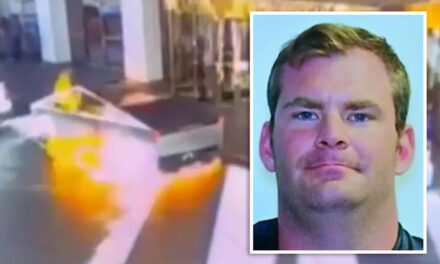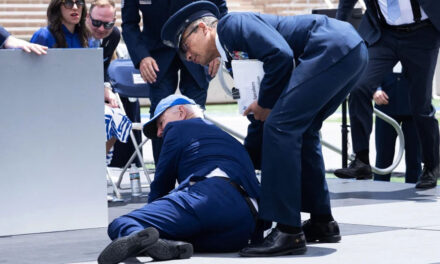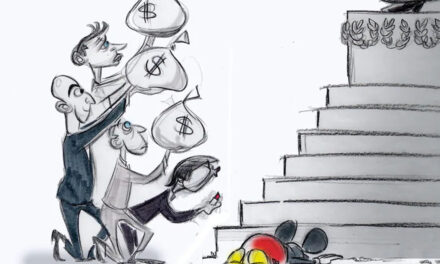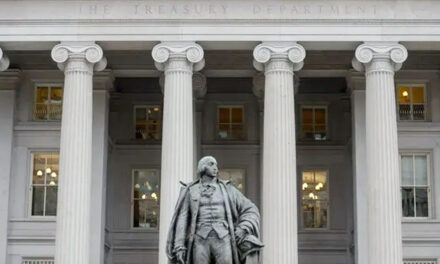
Presidential records laws need fixin’

Every now and then a unique situation arises that requires constitutional clarification and possible reform. The handling of presidential records is one such issue.
To understand the situation, we must separate the legal and constitutional realities from wishful political opinions. Both sides of the current controversy over the records President Trump took to Mar-a-Lago have widely divergent views on the subject.
Those on the left are clamoring to have Trump indicted, convicted, and incarcerated for espionage — and locked up for life for taking boxes of White House records with him when he left office. Trump supporters contend that his taking the records is no big deal – and that he would give them back if Attorney General would say “pretty please.” As in almost all cases, the truth lies somewhere in the middle.
There are two critical questions: Why did Trump want all those records? Did he have a legal (constitutional) right to take them?
To be perfectly honest, I have no idea why he wanted to take control of all the records. It is even a more difficult question to answer since we do not know what records he took home from the office. Some general information has been leaked or openly provided, but it is too general to divine any clue to Trump’s motivation. That leaves us with wild bias-based speculations. We will eventually know more, but for now, we can only wait to see what evolves.
Did Trump have the right or authority to take the documents with him? That question is divided into two parts. Documents that are not classified and those that may be top secret.
Documents that are not classified pose a little punitive risk to Trump. A violation of the presidential records law will not likely result in any major indictments. Maybe some civil charges. The Justice Department would have to prove that Trump knew the law and had intended to hold them indefinitely. Trying to have Trump jailed on that charge would be a loser for the DOJ and Democrats, in general.
Classified documents are a different situation, but the case against Trump is not as strong as those in the media claim. Virtually all constitutional scholars agree that the President of the United States has the arbitrary and absolute power to classify and declassify documents on his own authority.
Some point to the bureaucratic process that most Presidents employ to determine declassification. It is much like the process they use to determine pardons. Like pardons, however, that process is up to the President. By tradition and constitutional interpretation, a President does not have to consult anyone or consider any other opinion to issue pardons or declassify information.
Furthermore, there is no clear requirement that he issues his decision on classification in writing. In the strictest interpretation of the Constitution, the President can put a bunch of declassified documents in a box in the absence of witnesses … wave his hand over it … and declare them all declassified. He can even tell people after the fact.
It can be argued that the very fact Trump took the documents out of the guide rails of secrecy is evidence of declassification. It goes like this. If a President is not allowed to take classified documents out of the White House, the fact that he did means they are declassified.
I understand why some folks will strongly disagree with that argument – even me. But I raise it to point out that this is a very complicated issue that has never been tested constitutionally. It is a grey area. There is nothing in the arguments I raised that is wrong … or right.
We do have the Presidential Records Act of 1978 that requires the preservation of White House records, but it is weak and could be challenged constitutionally – even though it has not been.
I suggest we need a constitutional amendment to clarify the issue of government records – and the authority of a President. It cannot be done by legislation because you cannot require the President to do something by statute that violates the power granted in the Constitution.
It would be a very simple amendment – requiring that all records bearing a top-secret designation – whether classified by the President or other authorities – cannot be declassified by the President or any other individual. The amendment would establish a commission composed of five Cabinet members to make that decision by majority vote. They would include the Attorney General, the Director of the Central Intelligence Agency, and the Secretaries of State, Defense, and Homeland Security – with the President as a non-voting chairperson and the Director of the National Archives as a de facto member. I would create an inter-departmental records classification agency hosted by the National Archives – similar to the informal process other Presidents have used. Obviously, all the members of the Commission and staff would have the highest clearance.
The commission would not be a library of all secret classified documents, but only handle those in the highest secret categories that are to be declassified.
Such an amendment would also strengthen the Presidential Records Act to assure that no President will be allowed to remove any official documents from the White House and under the control of the National Archives – whether they are classified or not.
There may continue to be debate over some documents, but it would be confined to the least critical information.
It should be noted that keeping presidential records under the control of the National Archives does not mean a President would be denied access to research or memoirs. The records could still be stored at official presidential libraries under prescribed conditions – and under the control of the National Archives.
In the absence of such an amendment, I think our friends on the left may be disappointed when the dust settles of the records stored at Mar-a-Lago reach the courts. This is not going to get Trump a stay in the Iron Bars Inn. Stay tuned.
So, there ‘tis.
























Joe Gilbertson: where are you going with these threats? My free speech is facing intimidation, sometimes physical threats. Is this…
NOT BUSTED. You didn't have to say it. That is what I meant in the above post from me. But…
Just another ruse for taking jabs at Biden through alleged short comings of his. Ten days remaining in Biden's term…
I never said I WANT China to continue to own Panama. You made that up. First,I didn’t say it. Second.…
I absolutely do Not in any way, shape or manner fabricate ANYTHING you say. I do and will always tell…